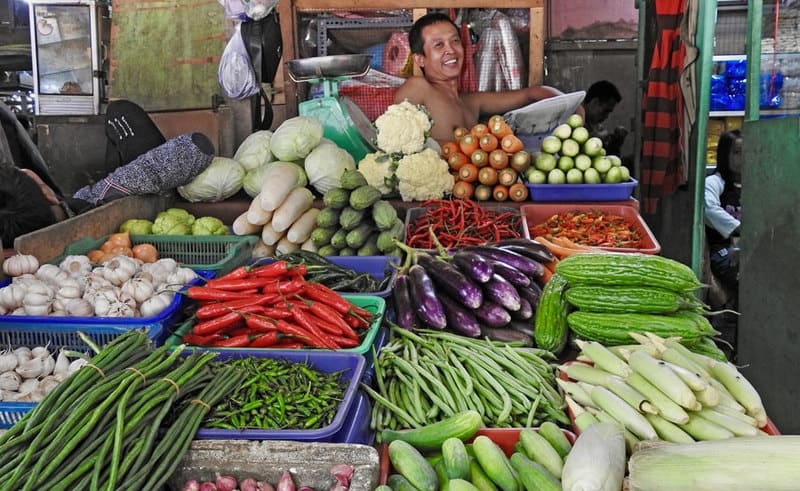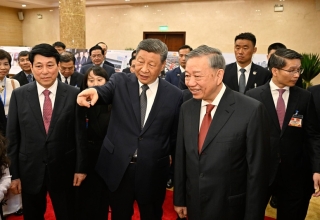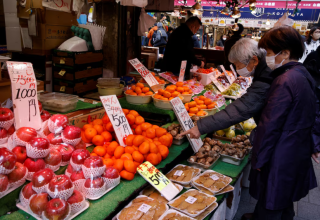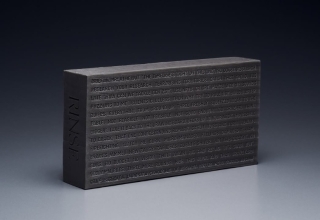
Last updated on May 11th, 2021 at 09:05 am
Tanah Abang Market management introduced this morning that the market which is one in all Southeast Asia’s busiest textile marketplace will remain closed following the extension of the coronavirus (COVID-19) emergency period.
Perumda Pasar Jaya president-director Arief Nasrudin says that the Tanah Abang reopening scheduled to take area on April 6 has temporarily been extended to April 19.
The transient closure goes in keeping with the governor’s prolonged “work from home” policy and the Central Government’s “large-scale social restriction” in regards to cutting the coronavirus chain of transmissions.
The delayed reopening of the marketplace affects the market’s Block A, B, and F sections till in addition notice. The only marketplace section in the Tanah Abang Market district is Block G, beneath restrained operational hours to fulfill the public’s need for staple foods.
Meanwhile, six traditional markets placed in West Java’s Depok City have tailored to the coronavirus (COVID-19) pandemic through adopting trade services that negate the need for physical presence, which goes consistent with the government’s social distancing policy.
“The traditional markets which have developed online trading as of March 30 are Cisalak, Agung, Kemiri, Tugu, Musi, and Depok Jaya,” said Depok Mayor Mohammad Idris in a written statement on Monday.
According to Idris, the primary goal of the trade is to assist people in their every day grocery shopping and encouraging people to preclude from physically visiting the markets.
Other traditional markets inside the vicinity which have adhered to a non-traditional way of shopping are the Sukatani Market and Tugu Market that permits shoppers via phone orders. The mayor stated that this only applies to people living in the nearby area.
The prices of staple goods in the aforementioned markets are claimed to remain normal and rely on the deal made among the sellers and customers except additional delivery fees. According to Idris, the government will similarly help people in purchasing staple goods.
Food safeguards
National Police Chief General Pol Idham Azis has issued a telegram letter containing recommendations for implementation of the criminal investigation department’s features pertaining to meals availability and distribution techniques at some stage in the COVID-19 pandemic.
The issuance of the police chief’s telegram letter was once validated by using Head of the National Police’s Criminal Investigation Department Commissioner General Pol. Listyo Sigit Prabowo, who signed the letter, representing the National Police Chief.
The telegram letter number: ST/1099/IV/HUK.7.1./2020, dated April 4, 2020, highlights various kinds of violations or crimes that may additionally dedicated in the structure of the pricing and stockpiling of goods and parties that might also impede or inhibit food distribution channels.
The National Police’s ranks had been known as on to perceive and map out troublemakers that can doubtlessly commit crimes to take advantage of the COVID-19 outbreak situation.
Through the telegram letter, National Police Chief Idham Azis has entreated his workforce to collaborate with stakeholders to verify the availability of food and campaign for food availability and distribution.
The Police chief additionally highlighted efforts to tackle the shortage of staples, consisting of sugar, garlic, and onions, through encouraging importers to straight away import and refined sugar factories to produce consumption sugar to overcome the shortage of the commodity.
Moreover, the National Police is additionally entreated to location escorts to expedite and oversee the distribution of meals elements from warehouses to markets and consumers.
Investigators are additionally known as on to be dynamic and adaptive as a precautionary measure towards a number of complicated threats and crimes on social media associated to the dissemination of hoax content material and expressions of hatred that can have an effect on the public.
The Chief of Police’s Telegram letter was once addressed to the head of National Police’s Criminal Investigation Department and all regional police chiefs.
























